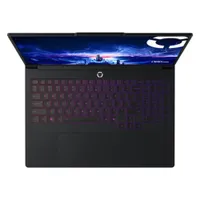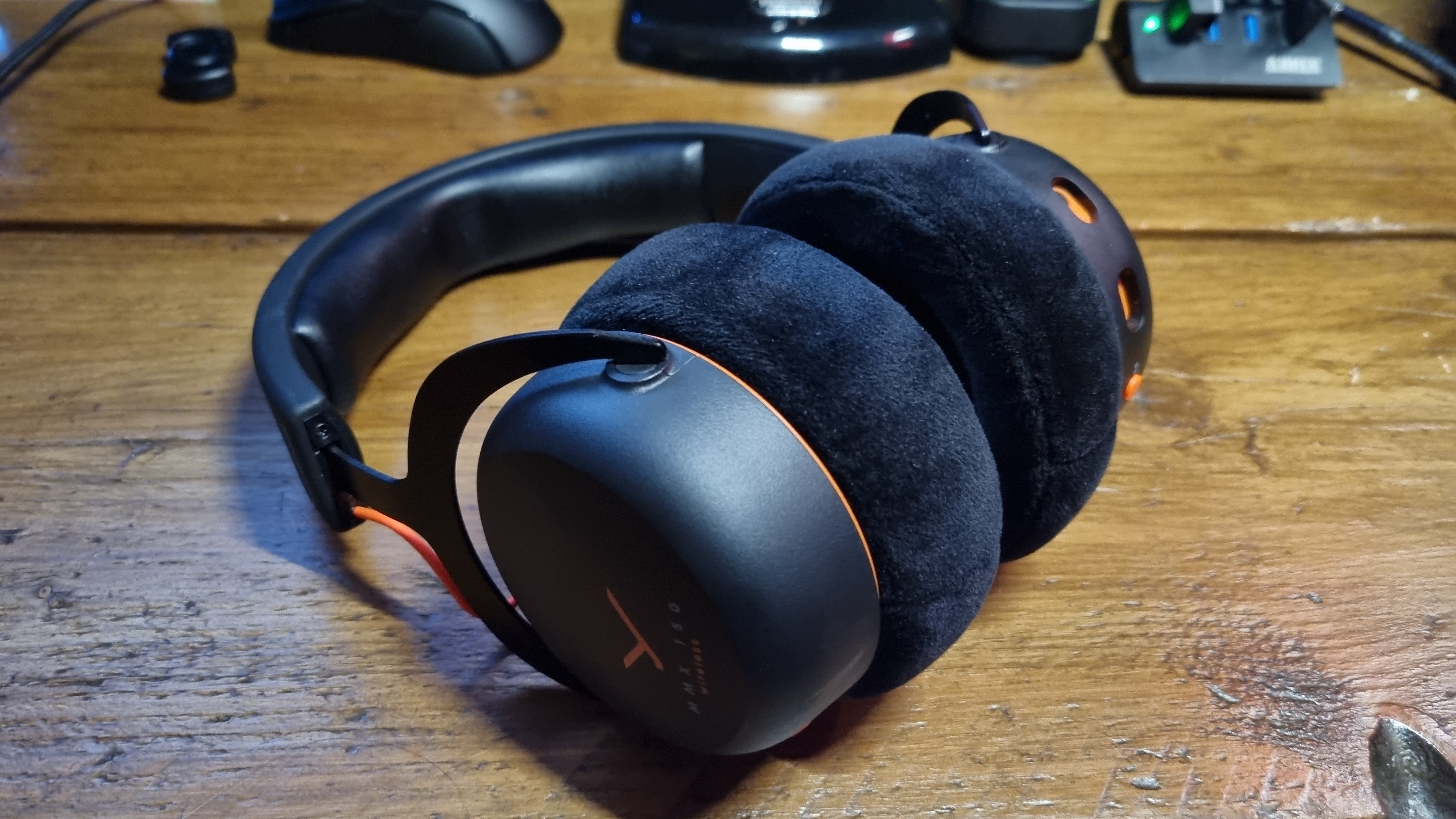Unlimited powaaaaah: Our high performance gaming laptop pick has $1,250 knocked off the price this Cyber Monday
It doesn't shoot lightning, though. At least it shouldn't, anyway.
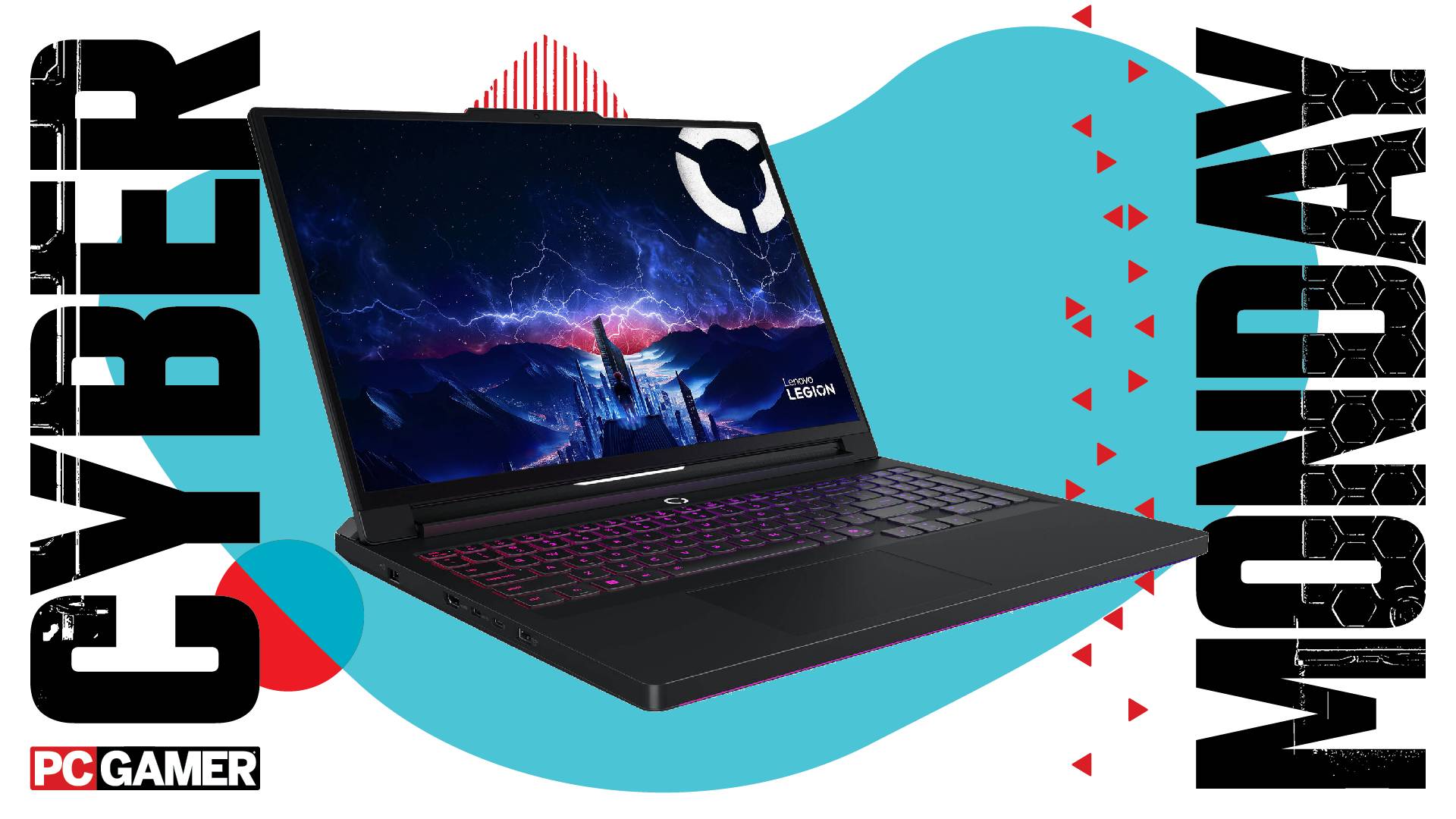
Keep up to date with the most important stories and the best deals, as picked by the PC Gamer team.
You are now subscribed
Your newsletter sign-up was successful
Want to add more newsletters?

Every Friday
GamesRadar+
Your weekly update on everything you could ever want to know about the games you already love, games we know you're going to love in the near future, and tales from the communities that surround them.

Every Thursday
GTA 6 O'clock
Our special GTA 6 newsletter, with breaking news, insider info, and rumor analysis from the award-winning GTA 6 O'clock experts.

Every Friday
Knowledge
From the creators of Edge: A weekly videogame industry newsletter with analysis from expert writers, guidance from professionals, and insight into what's on the horizon.

Every Thursday
The Setup
Hardware nerds unite, sign up to our free tech newsletter for a weekly digest of the hottest new tech, the latest gadgets on the test bench, and much more.

Every Wednesday
Switch 2 Spotlight
Sign up to our new Switch 2 newsletter, where we bring you the latest talking points on Nintendo's new console each week, bring you up to date on the news, and recommend what games to play.

Every Saturday
The Watchlist
Subscribe for a weekly digest of the movie and TV news that matters, direct to your inbox. From first-look trailers, interviews, reviews and explainers, we've got you covered.

Once a month
SFX
Get sneak previews, exclusive competitions and details of special events each month!
Our pick as the best high-performance gaming laptop features a monstrous collection of components, and this is the cheapest I can find it for in full game-crunching trim. The RTX 5080 is a full-strength 175 W variant, the panel is a 240 Hz OLED stunner, the Intel CPU is mega, and as our Dave found in his review, the gaming performance is simply excellent. It's one of the fastest laptops we've tested to date—although it must be said, it's a pretty sizeable machine to lug around if you plan on taking it on your travels.
Key specs: RTX 5080 | Core Ultra 9 275HX | 16-inch | 240 Hz OLED | 1600p | 32 GB DDR5 | 2 TB SSD
Price check: Lenovo $2,649.99
What can I say about the Lenovo Legion Pro 7i? Well, let's start off with the fact we regularly test the most powerful gaming laptops money can buy, and we crowned this model the best high-performance gaming laptop of them all.
It's not a bad result for the Lenovo machine, is it? I suppose I could also go one step further by mentioning that it's currently down to $2,250 at B&H right now as part of its Cyber Monday deals event, which represents a $1,250 saving over MSRP. If you're interested, of course.
- We're curating all the Cyber Monday PC gaming deals right here
Oh you are? Good, because this RTX 5080-equipped laptop is a performance monster, and even outperforms the RTX 5090 mobile found in the top spec of our best gaming laptop overall, the Razer Blade 16.
So why isn't the Lenovo sitting pretty at the very top spot? Well, the Blade 16 is a far slimmer and sleeker device, and while it's beaten in our gaming benchmarks overall by the Legion Pro 7i, it's the easier machine to live with of the two, while also running cool and quiet.
The Lenovo isn't the slimmest, the coolest-running, or the quietest. But my goodness, the gaming numbers speak for themselves.
Thanks to its 175 W RTX 5080, combined with a 24-core Intel Core Ultra 9 275HX and 32 GB of DDR5 housed in a chassis that can adequately keep things cool, the Lenovo streaks to the top of our leaderboards. Its also got a lovely 240 Hz 1600p OLED display to view all those frames upon, which is one of the best panels we've seen in a gaming laptop to date.
And while my earlier assertion that it isn't the quietest is correct, Lenovo's LegionSpace app allows custom power configurations—which means you can cut down on the fan noise significantly by pulling back the CPU while letting the GPU, as the kids say, eat. Seriously, it's some of the most impressive gaming laptop configuration software we've ever seen, giving you more knobs to twiddle and levers to pull than any other manufacturer allows. And it can allow you to really tune the performance to how you want.
That means great gaming performance and more reasonable fan noise is very much achievable, even if it's still not exactly quiet, per se. Clever stuff.


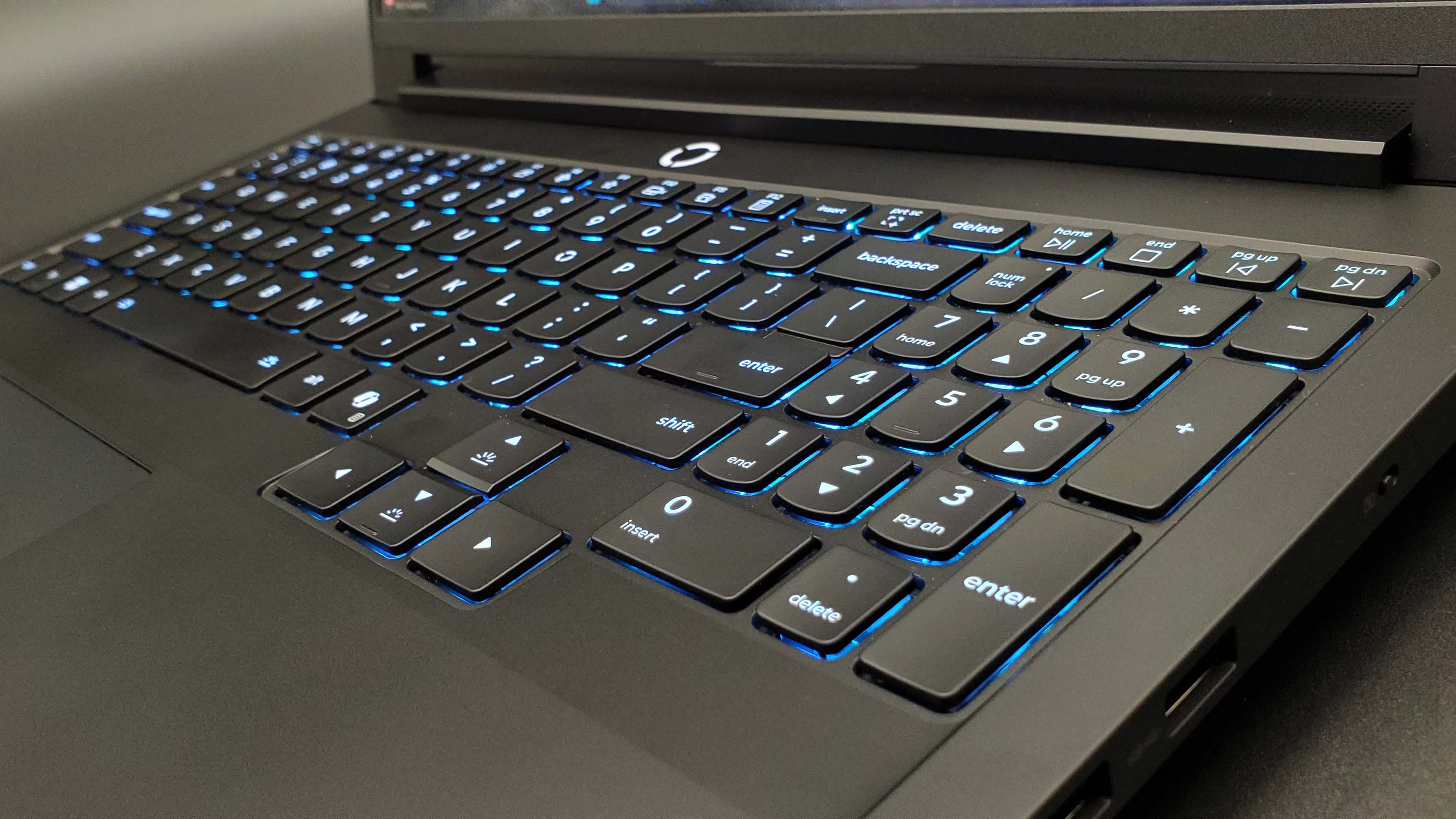
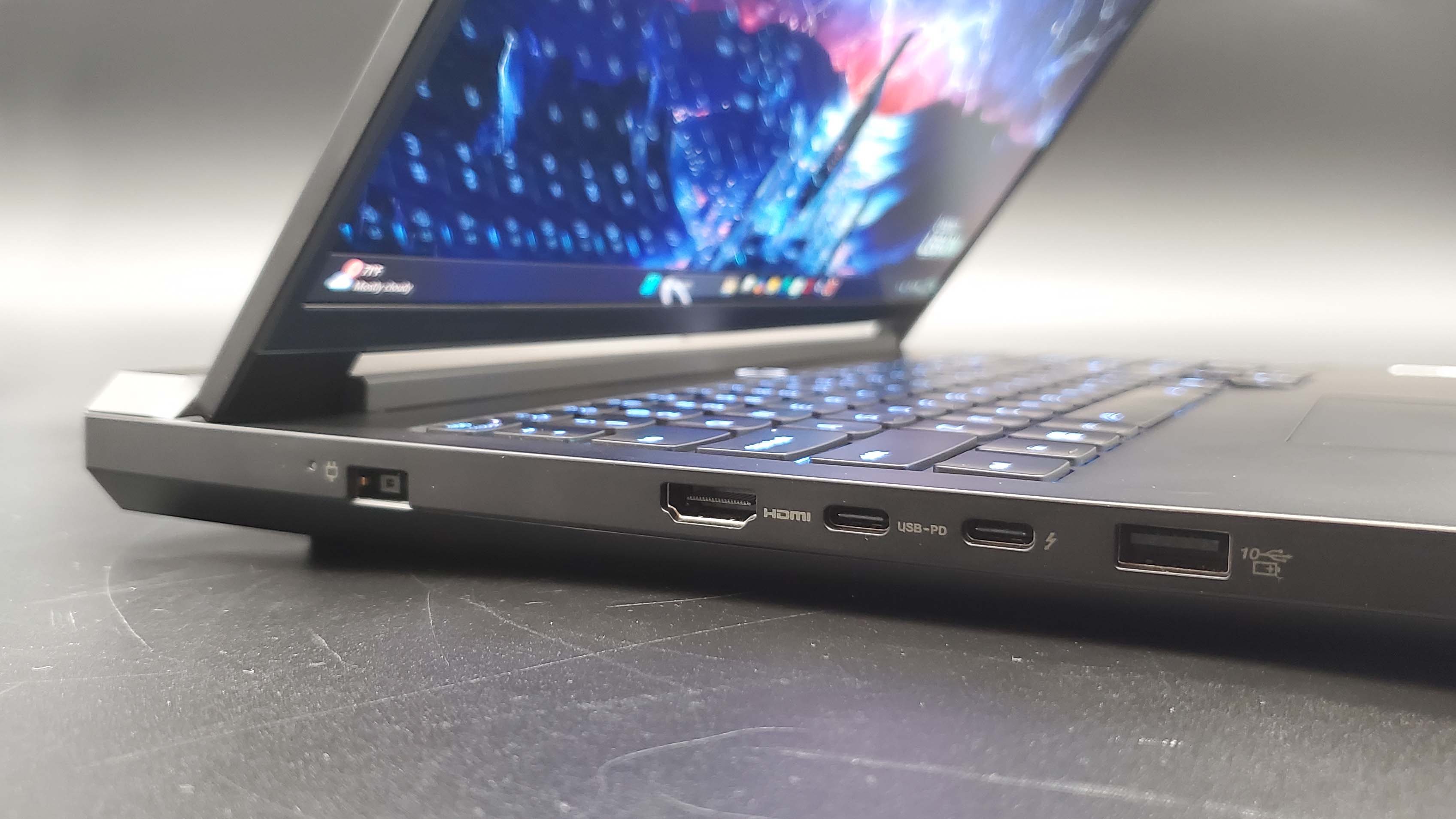
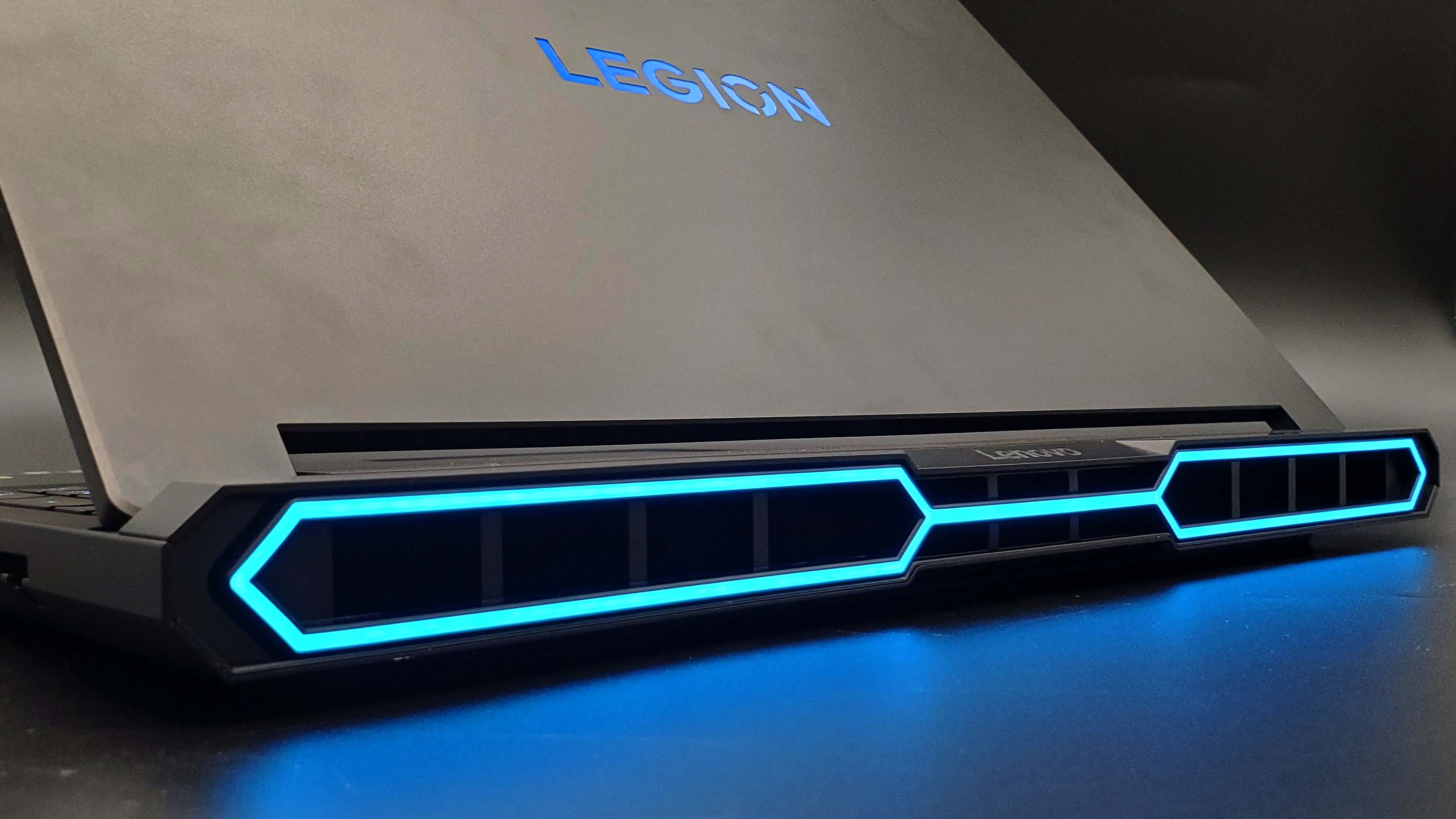
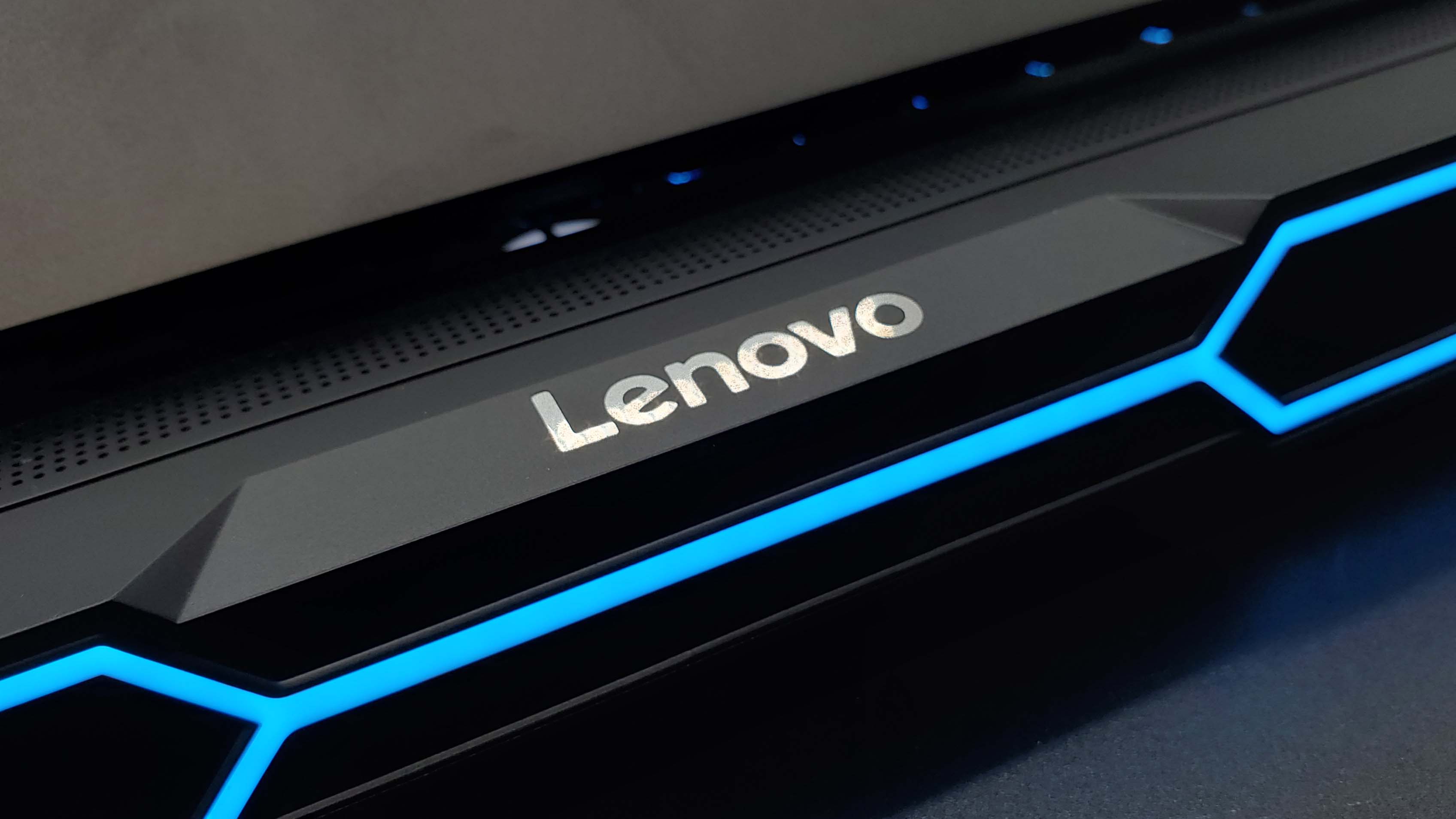
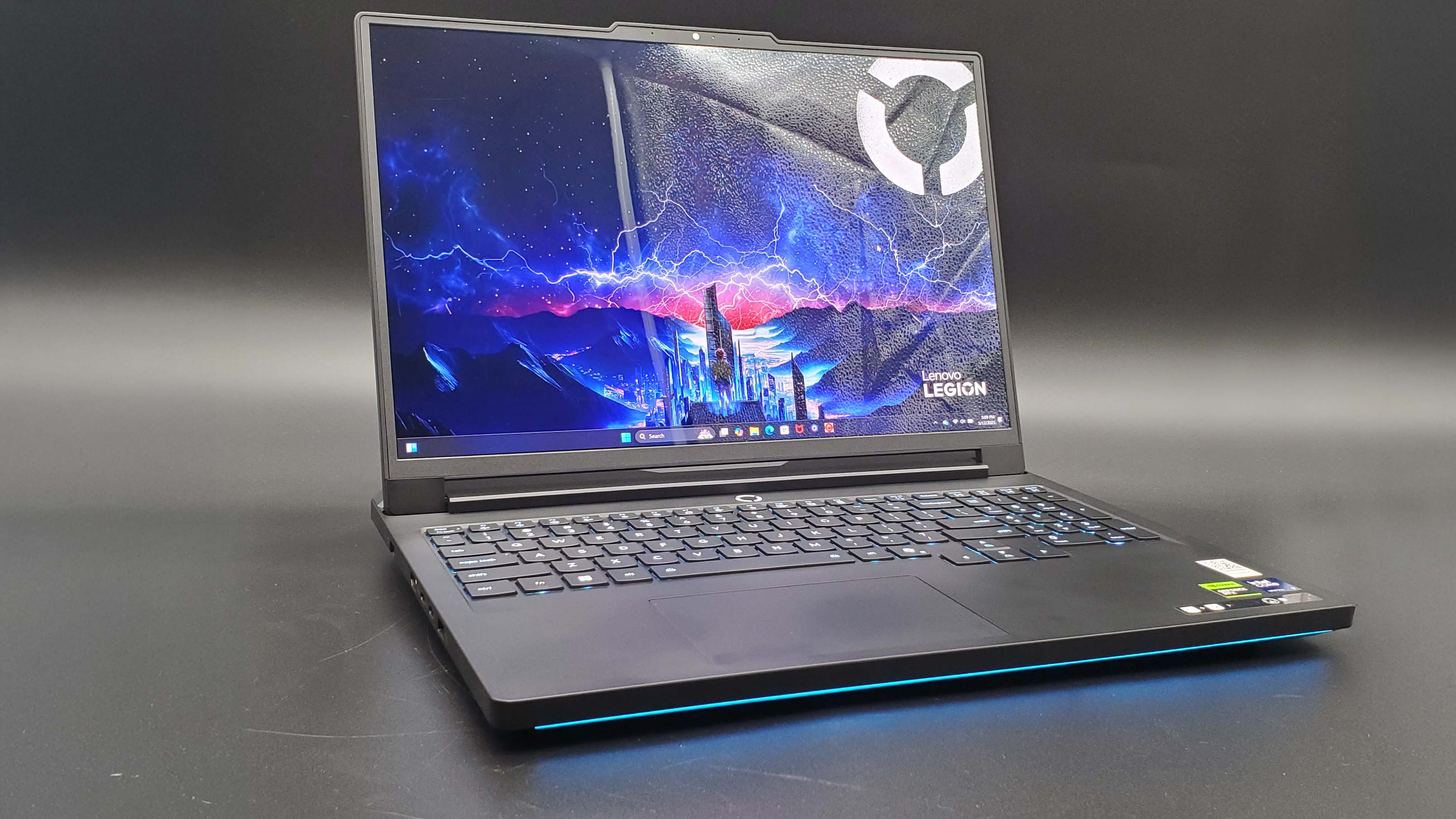
So what's not to like? Well, it's still very pricey, although it's much cheaper than most other RTX 5080 gaming laptops right now, even as the sales roll on. The chassis is very well-built and rather spectacular to behold, but it's also a bit angular and chonky, which means the Legion Pro 7i isn't the most portable of machines.
And the battery life is weak. Yes, this is a curse that befalls most high-powered gaming laptops, and the Legion Pro 7i is far from immune. But otherwise, it's a seriously powerful, hewn-from-granite, rock-hard gaming machine, and those qualities mean we can't help but love it.
You will too if you pick one up, I reckon. Sure, it's a lot of cash to pay even with a heavy discount. But if top-tier gaming laptop performance is your goal, this is the machine for you.
👉Shop all the B&H gaming laptop deals right here👈
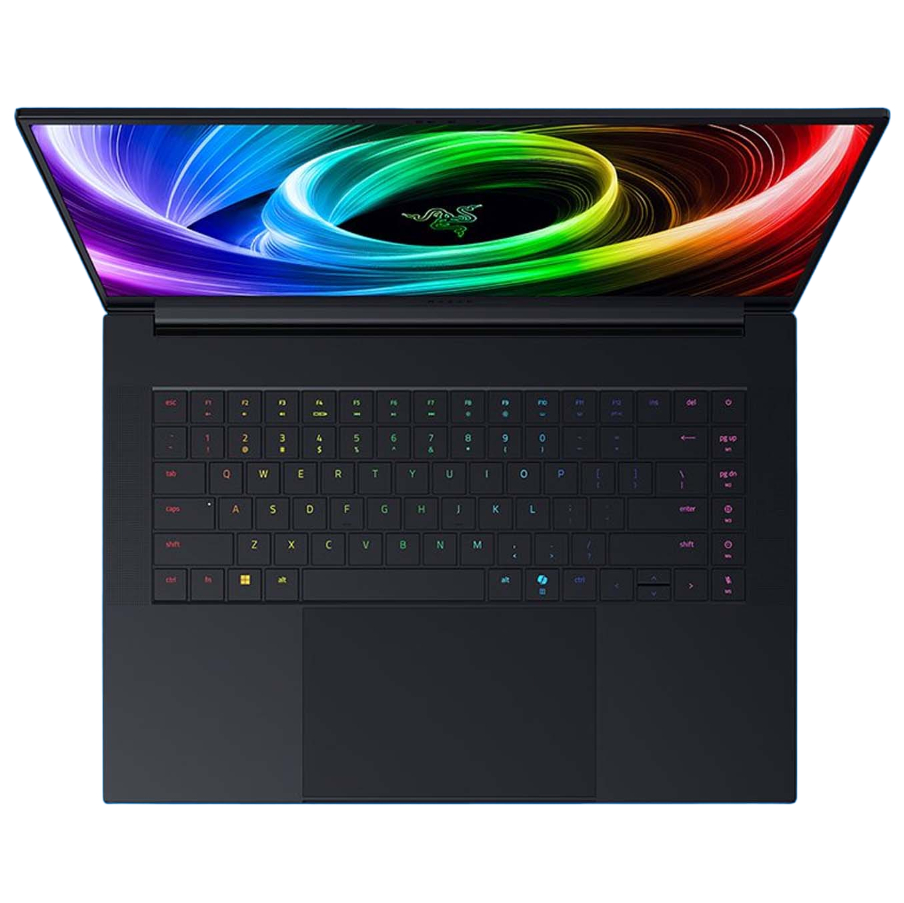
1. Best overall:
Razer Blade 16 (2025)
2. Best budget:
Lenovo LOQ 15 Gen 10
3. Best 14-inch:
Razer Blade 14 (2025)
4. Best mid-range:
MSI Vector 16 HX AI
5. Best high-performance:
Lenovo Legion Pro 7i Gen 10
6. Best 18-inch:
Alienware 18 Area-51
Keep up to date with the most important stories and the best deals, as picked by the PC Gamer team.

Andy built his first gaming PC at the tender age of 12, when IDE cables were a thing and high resolution wasn't—and he hasn't stopped since. Now working as a hardware writer for PC Gamer, Andy spends his time jumping around the world attending product launches and trade shows, all the while reviewing every bit of PC gaming hardware he can get his hands on. You name it, if it's interesting hardware he'll write words about it, with opinions and everything.
You must confirm your public display name before commenting
Please logout and then login again, you will then be prompted to enter your display name.
